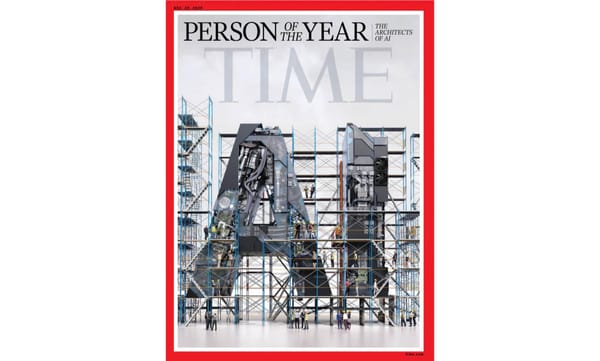The Online Harms Act Another Step Toward Authoritarian State Status

CapForCanada.com | Brad
“Freedom of speech is the concept of the inherent human right to voice one’s opinion publicly without fear of government censorship or punishment.”
Prepare to say goodbye to this one. While legal experts and civil liberties organizations wring their hands over an “Online Harms Act” Bill recently tabled by the Liberal government of Canada, media refuse to consider critical ramifications.
Cultural Action Party[est.2016] has spent the best part of eight years pointing to the transitory nature of Canadian society. “From democracy to dictatorship” has been a consistent theme within thousands of articles and blog entries we have published on the internet since our founding eight years ago.
We do so because of what we perceive to be a glaring omission from mainstream media narrative. No legacy media outlet will touch this with an 88-foot pole. As such, a vital piece of Canada’s transition to what PM Justin Trudeau describes as a “post modern” society is conveniently omitted.
In terms of freedom of speech, let us turn to China:
“The Chinese government tolerates debates only as long as they occur in private discussions, closed academic conferences, government-authorized publishing outlets, or other forums where the government does not feel there is any threat of public participation that it cannot control.”
“Despite barriers to access to the means of publication and the dangers inherent in publishing political news, members of China’s “free-speech elite” are able to express concerns and criticism regarding the government with less fear of punishment than the average Chinese citizen.”
Is Bill C-63 a step toward emulation of communist governance? It’s critical to keep in mind the incremental nature of authoritarian seductions of societies. One step at a time, each time ramping up pre-meditated erosion of the rights of individual citizens.
What we have here is a stratification, or hierarchy, of “who can say what” in China. At the top, politicians, followed by government-sanctioned media outlets.
Below them, “the average Chinese citizen.” If and when they choose to express “unorthodox” opinions on the internet, they do so at a risk of punishment from bureaucratic bodies who report to their government.
In Canada, government-sanctioned media outlets– for example the CBC-– are given greater leeway than average Canadians, understanding all the while that a breach of government “protocol” could potentially erode the $ 1.2 billion dollars the Feds feed to them every year.
As contained within Canada’s Charter of Rights and Freedoms, Section 2(b) – Freedom of expression— includes the following provision:
Everyone has the following fundamental freedoms:
— Freedom of thought, belief, opinion and expression, including freedom of the press and other media of communication.
“Bill C-36 would allow for judges to put prior restraints on people whom they believe on reasonable grounds may commit future speech crimes, meaning the accused would have the option of choosing between imprisonment or a recognizance to keep the peace.”
Stop the press. Does the phrase “may commit” suggest an impediment on “freedom of thought and belief” as expressed in the Charter?
What we can say(for the present), and have said for years, is that the prime minister of our country is tasked with transferring Canada away from its foundation in democratic governance, and toward authoritarian state structure which exist in Justin Trudeau’s preferred nations of China and Cuba.
Chipping away at Canada’s democratic core, the Liberals now in the process of instituting a post-modern edition of a “surveillance state.” Step out-of-line, and spend your days in fear of government reprisal.
Back in Charter-land, we find the following:
“The protection of freedom of expression is premised upon fundamental principles and values that promote the search for and attainment of truth, participation in social and political decision-making and the opportunity for individual self-fulfillment through expression.”
If the Bill passes as it has been tabled by Liberal Attorney General MP Arif Virani, there is little doubt that push-back from civil liberties organizations will result:
Both The Democracy Fund and The Canadian Constitution Foundationare aiming to sound the alarm before the legislation is passed:
“This bill is a trojan horse. If allowed to pass, it would quickly release an army of bureaucrats and social media censors on the Canadian public.”
An army of bureaucrats, like this:
“The Canadian Human Rights Act would be amended to allow complaints about online hate speech to be filed with the Canadian Human Rights Commission.“
“The legislation would see the government establish a five-member Digital Safety Commission to enforce the new rules.”
“The government is proposing to establish a Digital Safety Ombudspersonwho would offer support to victims and guidance to social media companies.”
Every one a government-appointed, non-elected bureaucrat financed by the Liberal government.
Welcome to “witch-hunt” time in Canada.
“Bill C-63 would allow anybody to file complaints to the Canadian Human Rights Commission for any speech directed towards protected groups that they may feel to be discriminatory.”
Commenting on Bill C-63, Mark A. Joseph, senior litigation counsel for The Democracy Fund says:
“If this bill passes, I suspect many Canadians will now be too afraid of a human rights complaint to participate in policy debates around things like race, religion and gender.”
Bingo. CAP has gone here on many occasion: the leveraging of race, religion and sexuality as silver bullets in the war against individual freedoms in Canada.
We said it then, and will say it now. The day Justin Trudeau became prime minister is the day that Canada began its “long walk in the snow” toward democratic degeneration.
“It’s difficult for me, a lawyer who works on free expression cases, to know exactly where the line is between protected speech and hate speech,” said CCF Counsel Josh Dehaas.
Ambiguity being just what the woke doctor ordered. Once invoked– as it has been in China since the Communist Revolution in the 1950’s– Canadians will be living in fear of government. And what, pray-tell, is to follow on the neo-authoritarian path being carved out in Canada?
“Although the 1982 constitution guarantees freedom of speech, the Chinese government often uses the “subversion of state power” and “protection of state secrets” clauses in their law system to imprison those who criticize the government.“
Is this the next stone in the pathway of Canada’s conversion to authoritarian state status?
Original Article: https://capforcanada.com/is-the-online-harms-act-another-step-toward-authoritarian-state-status/

Support Truth11.com With A $3 or $11 Monthly Subscription
Thank you for supporting independent media. Your subscription is directly helping us cover costs to keep Truth11.com going! Thank you Truth Warriors!




Comments ()